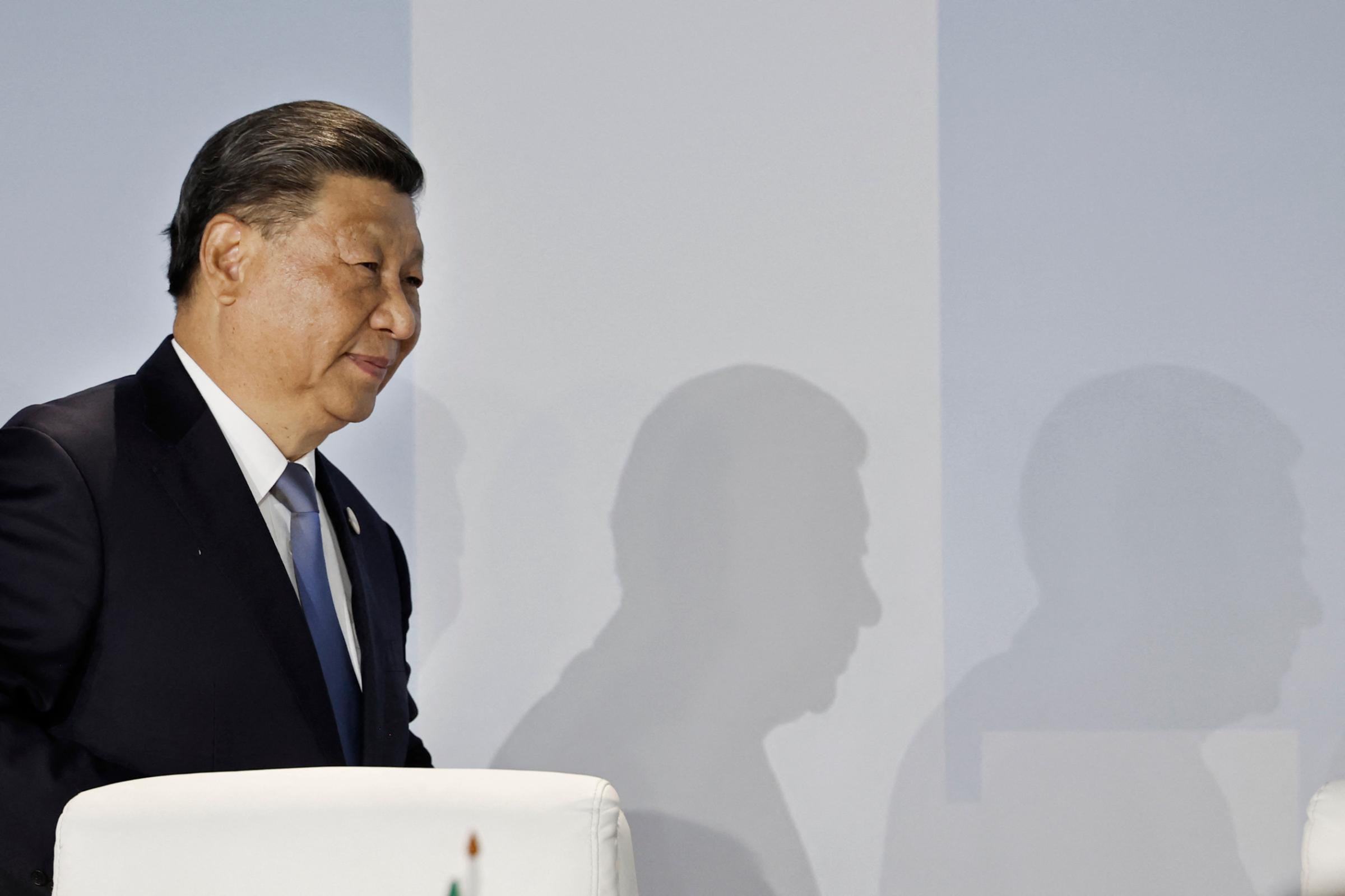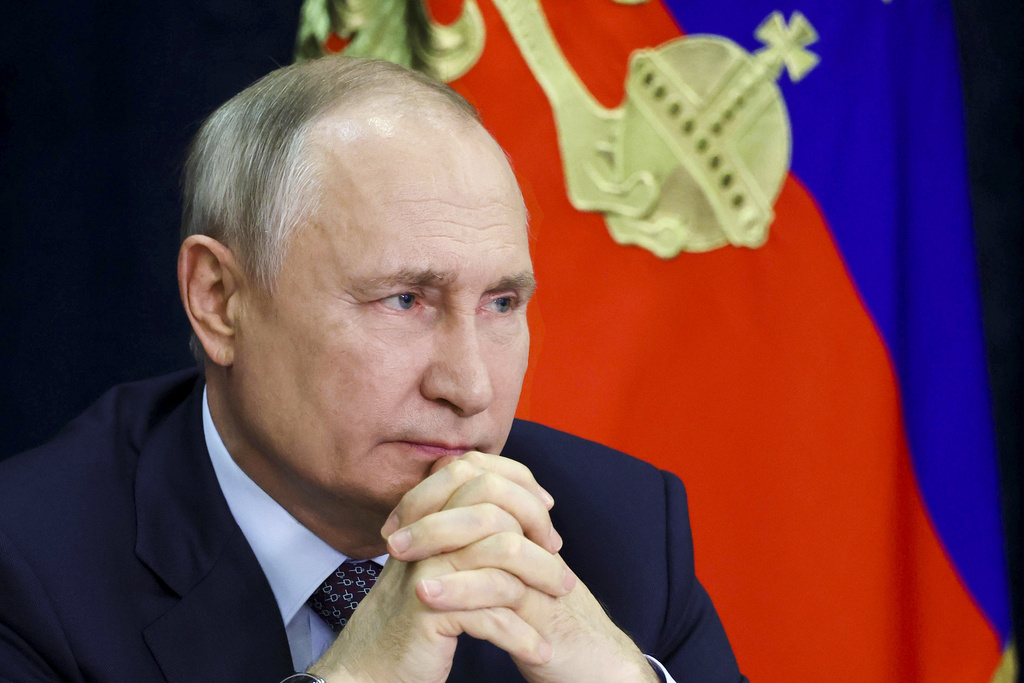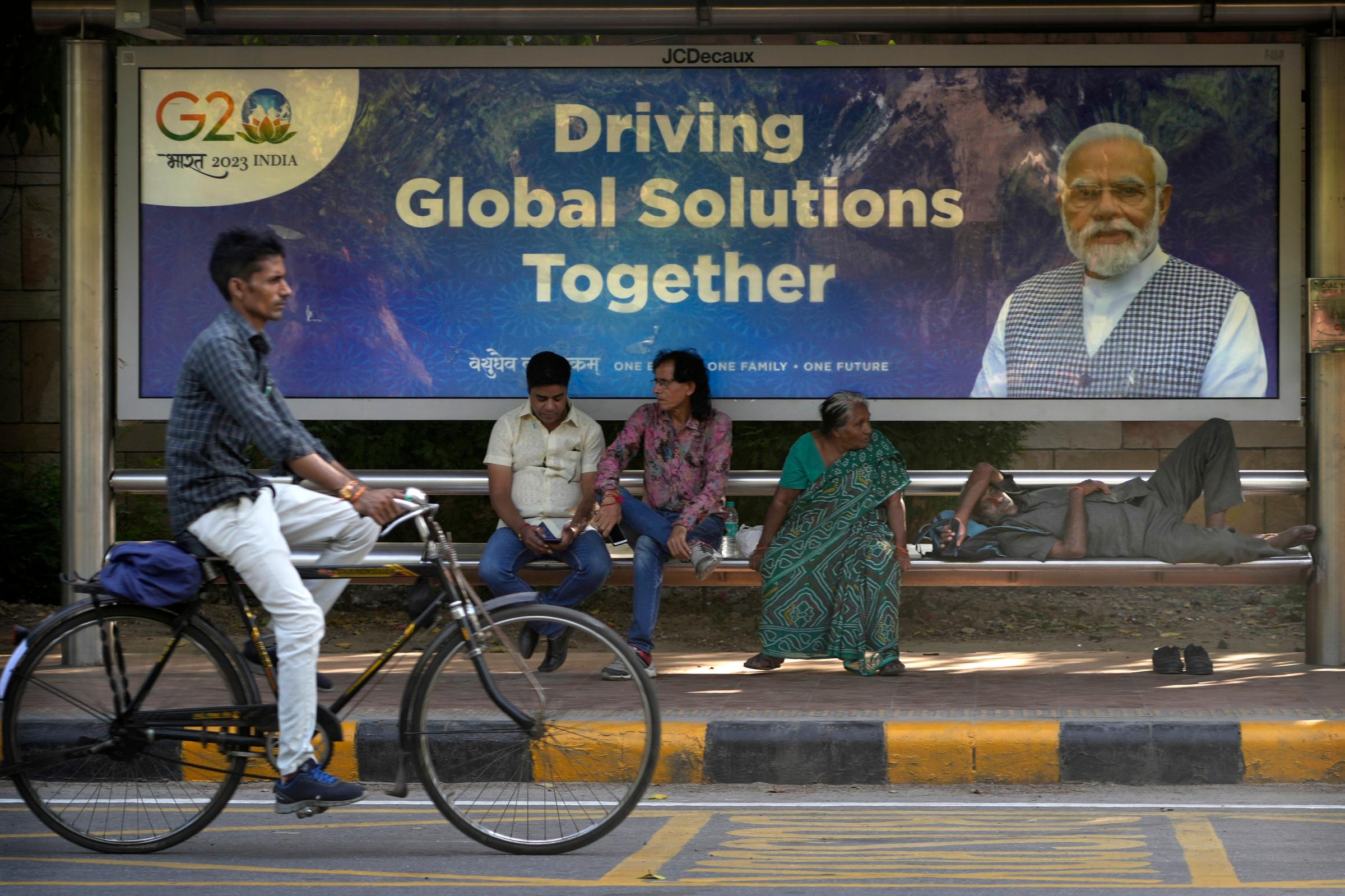Representatives of the world’s largest economies—among them U.S. President Joe Biden, German Chancellor Olaf Scholz, French President Emmanuel Macron, Saudi Arabia’s Mohammed Bin Salman, and Japan’s Fumio Kishida—will be descending on New Delhi for this weekend’s G20 Leaders’ Summit.
The intergovernmental forum founded in 1999 to bring together financial ministers from 19 nations plus the European Union to address issues related to the global economy has annually brought together heads of state since 2008, establishing the G20 Leaders’ Summit as one of the most high-profile geopolitical assemblies. With India presiding over the group this year, Prime Minister Narendra Modi is counting on the Sept. 9-10 gathering to bolster his country’s position as a global leader as well as burnish his own diplomatic credentials as he prepares to seek a third term in domestic elections due next year.
“New Delhi views the G20 presidency as an opportunity to show that it has the capacity to serve as a bridge to the Global South; that it can show India’s ability to manage relations with rival powers,” Michael Kugelman, the director of the South Asia Institute at the Wilson Center in Washington, tells TIME. But the task was never going to be easy, amid rising tensions around the world from Ukraine to the Indo-Pacific. A key test will be whether Modi can ensure the summit ends with enough consensus to produce a joint communiqué or Leaders’ Declaration.
Even without a joint declaration, however, there are other ways that Modi has already managed to use the G20 presidency to his advantage. In May, New Delhi opted to host a G20 tourism meeting in Kashmir—India’s sole Muslim-majority region that Modi’s government controversially stripped of its special autonomous status in 2019—in an apparent bid to normalize its hold over the disputed region, which is also claimed by Pakistan. More recently, on dinner invitations that were sent out to G20 delegates, the Indian government listed the country’s president as the “President of Bharat,” the official Sanskrit name of the country that has gained traction among members of Modi’s Hindu nationalist ruling party.
Read More: ‘Bharat’ or ‘India’? The Controversy Over Some Hindu Nationalists’ Push to Rename India
“It’s very clear that Modi has politicized [India’s] G20 presidency in order to not only try to achieve domestic political goals, but also to show that Modi can do this well and that he has the strength to pull this off,” says Kugelman. “And of course, that’s nothing to sneeze at, given that India’s election is coming up in less than a year.”
Here’s what to know about the biggest issues that will loom over New Delhi this weekend.
Xi’s unexpected absence and China-India tensions

While many world leaders will be present, this year’s G20 summit may be defined most by a notable absence: Chinese President Xi Jinping will skip the gathering for the first time since he took power in 2012. Beijing revealed on Monday that the Chinese delegation would instead be led by the country’s premier, Li Qiang.
There are likely a number of factors behind Xi’s decision not to attend the gathering. His absence on the G20 stage, however, comes at the height of domestic turmoil. Youth unemployment has surged to a record high while the elderly population requiring social services continues to grow, the real estate sector is in crisis as the wider economy faces a dramatic slowdown, and leaders in the government and military have been replaced amid scandals or for mysterious reasons. Nikkei Asia reported on Tuesday that Chinese Communist Party elders chided Xi over the country’s declining state of affairs during a party retreat earlier this summer. Other observers tell Bloomberg that Xi, since he began his historic third term last year, has been making moves to step back from day-to-day governing and statesmanship and to assume more of an “emperor”-like role focused on his big-picture vision for the country.
It could also simply be a matter of diplomatic strategy or messaging. Some analysts have interpreted Xi’s decision not to attend the summit as further evidence of the Chinese leader’s preference for forums where Beijing has a more dominant role (such as the emerging economies grouping BRICS or the Shanghai Cooperation Organization); others have pointed to the deteriorating relations between China and the summit’s host, India. While the two most populous countries in the world have previously nurtured economic and cultural ties, the India-China relationship has become increasingly strained by the former’s growing engagements with the U.S.—much to Beijing’s chagrin—as well as due to an unresolved territorial conflict in the western Himalayas. The neighbors’ long-standing border dispute came to a head last week following the Chinese government’s release of a new map depicting India’s northeastern Arunachal Pradesh state and the disputed Aksai Chin region within China’s jurisdiction. New Delhi’s “strong protest” against the map was met with apparent indifference by Beijing, which urged its neighbor to “stay calm.”
“Because China and India have their own tensions along their disputed land border, and Xi is not attending perhaps as a result, Beijing likely wants to embarrass New Delhi while it has the spotlight on the world stage,” says Derek Grossman, a senior Indo-Pacific defense analyst at the California-based think tank RAND Corporation, who notes that perceptions of the summit’s success will be hampered by Xi’s absence.
“The G20 is really one of the most prestigious economic forums out there, and one would expect that the Chinese president would want to be front and center at that summit,” says Kugelman. “We really should not dismiss the possibility that this is somehow linked to India.”
Xi’s absence at the G20 summit will also be a missed opportunity for the Chinese leader and President Biden to speak face-to-face. The two met on the sidelines of last year’s summit in Bali, and another such confab could help to thaw the icy relations between the two rival superpowers and prevent further escalation between the U.S. and China—already divided over trade disputes, Taiwan, and the spy balloon incident earlier this year, among other issues. Biden said earlier this week that he was “disappointed” by Xi’s decision, but the U.S. President vowed he would “get to see” his Chinese counterpart eventually.
Putin’s expected absence amid the war in Ukraine

Also absent will be Russian President Vladimir Putin, who confirmed that he will once again forego the gathering, having skipped the summit in Bali last year. While the Kremlin cited Putin’s “busy schedule” as the reason for this year’s absence, the Russian president has opted out of virtually every multilateral gathering since he launched his full-scale invasion of Ukraine last year, save for last month’s BRICS summit with the leaders of Brazil, India, China, and South Africa, which he attended via video link.
Putin’s absence is widely understood as an effort to avoid international scrutiny (or worse, arrest) over the war in Ukraine, which continues to loom over the G20. Since India assumed the G20’s rotating presidency in December, not a single joint communiqué has resulted from any of the group’s ministerial meetings, owing primarily to diverging positions over the war in Ukraine. The prospects of reaching such consensus at the leaders’ summit are not looking good for Modi. If India is unable to produce an agreement at the summit, it will be the first to end without a Leaders’ Declaration.
The likelihood of such an outcome was heightened last week when Russian Foreign Minister Sergei Lavrov, who is slated to stand in for Putin in New Delhi, confirmed that Russia will block any final declaration that doesn’t reflect its position on Ukraine—a nonstarter for many leaders in attendance. Still, India could choose to follow in the way of its predecessor Indonesia, which during last year’s G20 summit managed to successfully produce a joint declaration by using language such as “most members” that conveyed disagreements over the war in Ukraine.
India itself has so far refused to condemn the Russian invasion, which analysts believe hinges upon diplomatic ties that date back to the Cold War. India relies on Russian weapons, and Russian oil remains India’s major crude import. But as Russia turns to improve its relations with China, India’s government has made efforts to distance itself slightly by sourcing its defense technologies outside Russia. Nevertheless, experts say India completely shaking its dependence on Russia may take decades.
“The Indian government realizes that India’s future doesn’t lie with Russia. India’s future lies with the West and the U.S.—technology, weapon systems, economy,” says Sinderpal Singh, a senior fellow at the S. Rajaratnam School of International Studies in Singapore who has studied India’s foreign policy. “But India cannot abandon ship for a range of reasons at this point in time.”
A focus on the Global South
As China and Russia may dominate much of the G20’s focus in absentia, India is also looking to use its presidency this year to put a spotlight on the so-called Global South.

G20 member-states represent more than 80% of the world’s total economic output, 60% of the Earth’s population, and 75% of global trade, but the group has long been previously criticized for failing to address problems that disproportionately plague developing countries, like debt, food security, and climate change. “Our effort will be that there should not be any First World or Third World in the world, but only one world,” Indian Prime Minister Narendra Modi said at the unveiling last November of the 2023 G20 Summit logo and theme: Vasudhaiva Kutumbakam, or “One Earth, One Family, One Future.”
India pledged to use its presidency of the G20 to prioritize addressing the climate crisis—particularly climate finance, the development of green technologies, and a just energy transition. Also on its agenda are gender empowerment, inclusive economic growth, and the digital public infrastructure development.
Read More: How India Became the Most Important Country in the Climate Fight
In January, India hosted a virtual Voice of Global South Summit that invited 125 countries, mostly developing states, to discuss their pressing problems with the goal to, according to the Ministry of External Affairs, “channelize these inputs into the deliberation and discourse of the G20.” And just after the G7 Summit in May, Modi flew to Papua New Guinea to expand India’s outreach to Pacific Island states, which have been caught in the geopolitical crossfire of the likes of the U.S., China, and Russia. “We are victims of global powerplay,” Papua New Guinea Prime Minister James Marape told Modi upon his visit. “You are the leader of Global South. We will rally behind your leadership at global forums.”
India invited nine countries—Bangladesh, Egypt, Mauritius, Netherlands, Nigeria, Oman, Singapore, Spain, and the United Arab Emirates—to join the G20 as guests this year, and Modi recently even proposed that the African Union be made permanent members of the group.
“The core mandate of the G20 is to promote economic growth and development,” India’s Foreign Minister Subrahmanyam Jaishankar said in late August. “And that cannot advance if the crucial concerns of the Global South are not addressed.”
More Must-Reads from TIME
- Caitlin Clark Is TIME's 2024 Athlete of the Year
- Where Trump 2.0 Will Differ From 1.0
- Is Intermittent Fasting Good or Bad for You?
- The 100 Must-Read Books of 2024
- Column: If Optimism Feels Ridiculous Now, Try Hope
- The Future of Climate Action Is Trade Policy
- FX’s Say Nothing Is the Must-Watch Political Thriller of 2024
- Merle Bombardieri Is Helping People Make the Baby Decision
Write to Yasmeen Serhan at yasmeen.serhan@time.com